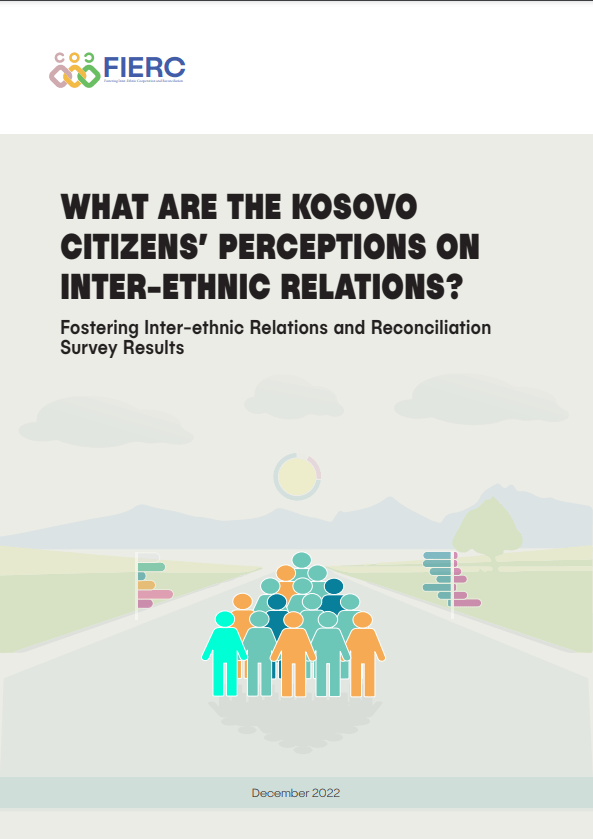The ongoing political issues and unsolved tensions between communities as a result of the war in Kosovo in 1999 continue to present obstacles for the advancement of interethnic relations in the country. Inter ethnic cooperation in Kosovo, particularly between Kosovo Albanians and Kosovo Serbs, is still hampered by the inadequate treatment of war crimes, crimes against humanity, and violations of human rights.
To date, efforts to break the impasse in inter-ethnic relations have primarily been made in the margins of the Kosovo-Serbia dialogue, which began in 2011, thus overshadowing a potential process of societal reconciliation and cooperation. As a result, rather than a societal debate that strives to discover commonality and minimize disparities, the perspective of the Serbian and Albanian population in Kosovo regarding the state of their relations and mutual cooperation has remained somewhat hazy and prone to political processes.
Therefore, this report aims to reflect the viewpoint of these two communities on the status of interethnic relations and cooperation in Kosovo based on the findings of the survey conducted as part of the “FIERC – Fostering Inter-ethnic Cooperation and Reconciliation” project, which was launched by the Kosovar Center for Security Studies (KCSS) and New Social Initiative (NSI) at the end of October and beginning of November 2022.
The report consists of four key chapters. The first chapter summarizes the citizen perceptions on the state of inter-ethnic relations in Kosovo, while it is followed by the second chapter focusing on the viewpoints of the citizens on inter-ethnic cooperation. On the other hand, chapters three and four provide a summary of the findings of the survey in relation to the perceived representation of the Albanian and Serbian community in municipal and central level institutions, and acceptance of other ethnic groups in their respective communities.





